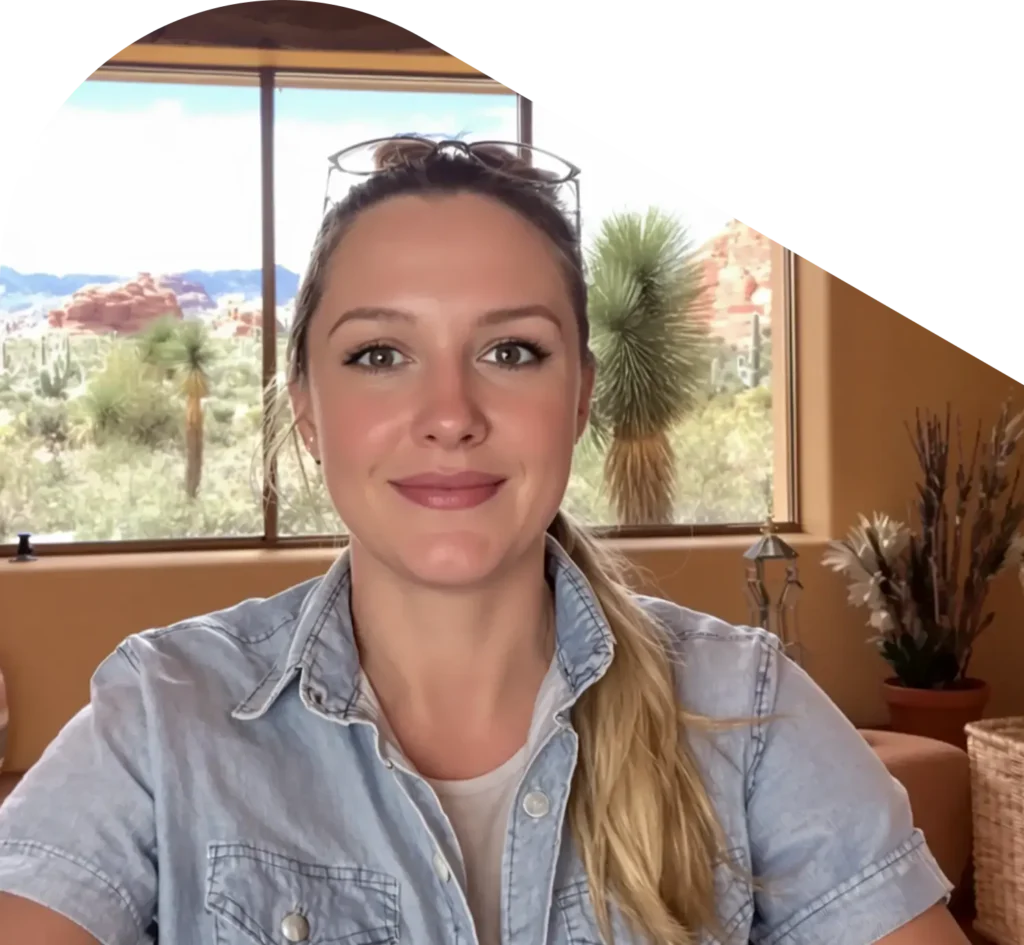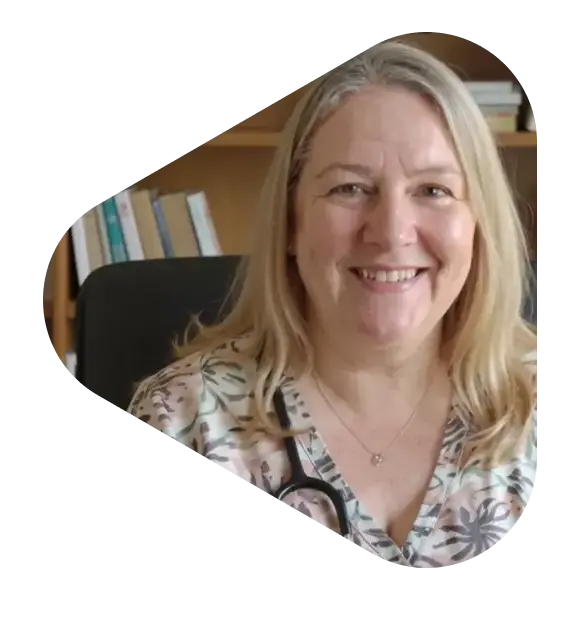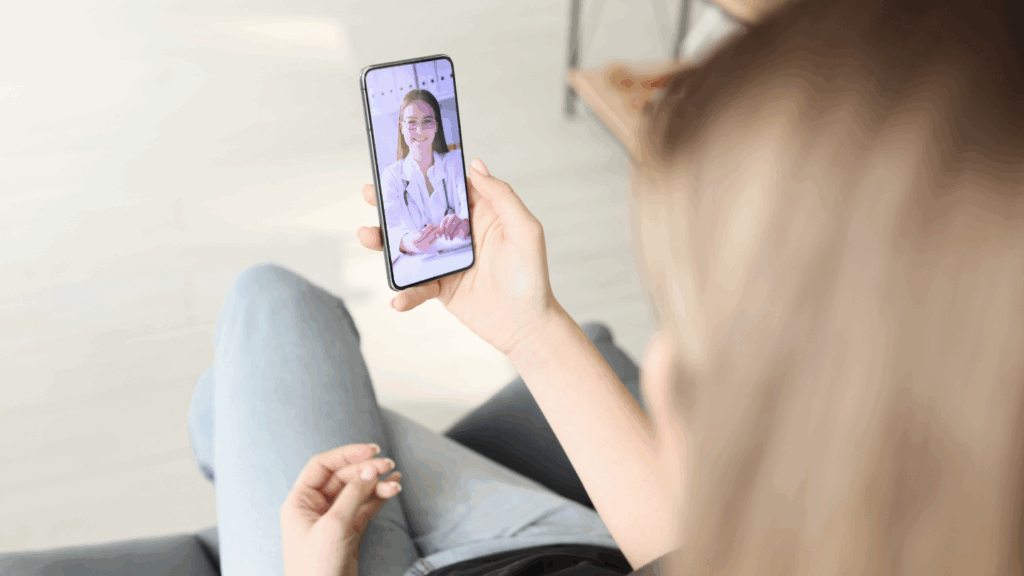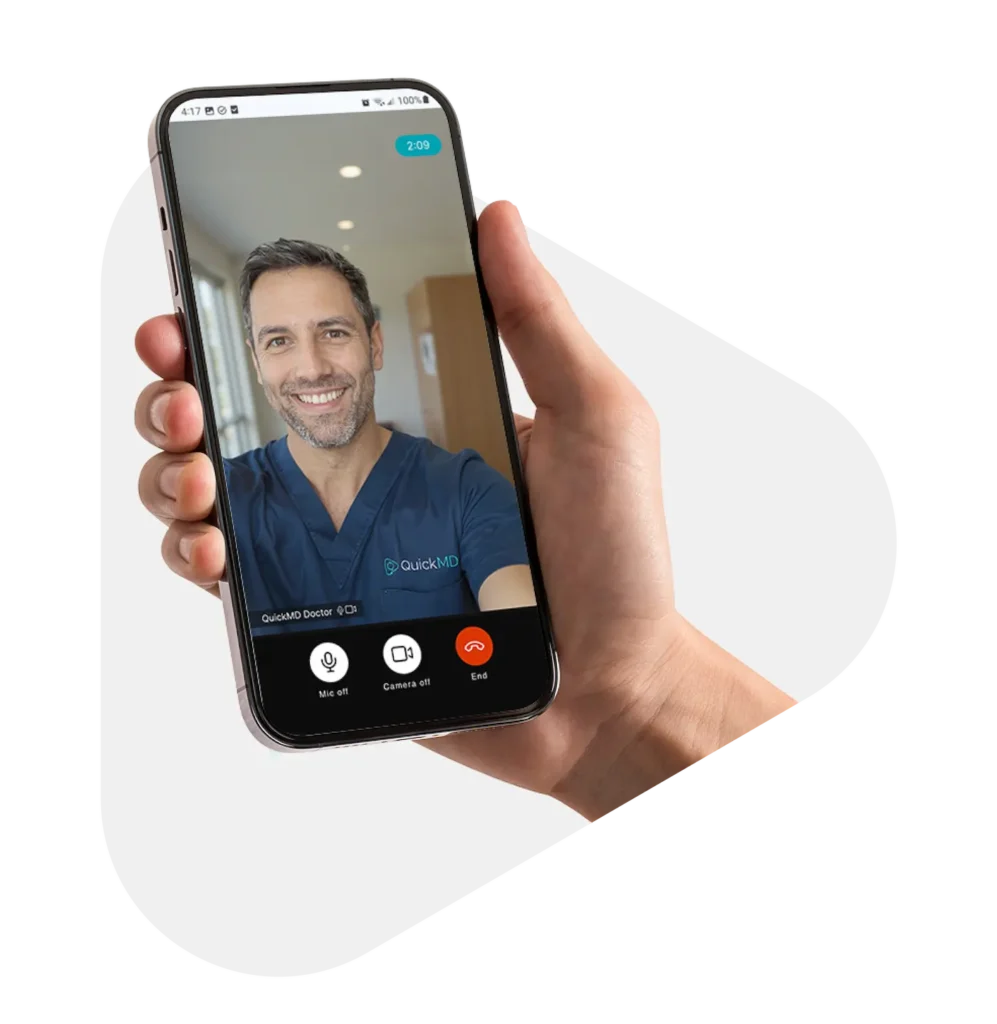Medication-Assisted Treatment in Texas
QuickMD offers private, judgment-free addiction treatment online in Texas for substance use disorders, including treatment with Suboxone®.
Book now

Manage opioid cravings and withdrawal with Suboxone® treatment
Learn about treatment
Why choose QuickMD for addiction treatment in Texas?
Getting care at QuickMD is simple, secure, and accessible. We eliminate the hassle of waiting rooms and insurance. Here’s why thousands of patients trust us for quick, compassionate care:
Same-day
appointments
No insurance
required
Licensed &
certified providers
100% online
appointments
Over 100K+
patients served
Nomemberships
Start treatment with Suboxone® today
At QuickMD, getting your Suboxone® prescription is simple. Schedule a quick phone or video appointment with a licensed provider and we’ll send your prescription directly to your pharmacy.
Why virtual addiction treatment matters in Texas
Getting help for addiction should be straightforward. But in many parts of Texas, it’s anything but.
Since 2010, 19 rural hospitals have closed, and today, nearly one in three are considered vulnerable, according to the National Rural Health Association. That means entire regions are losing access to care, not just emergency services, but mental health and addiction treatment, too.
At the same time, overdose deaths are climbing. In 2022, 5,489 Texans lost their lives to drug overdoses, as reported by USA Facts. That’s 18 people for every 100,000 residents. While Texas still has a lower overdose rate than the national average, the direction is troubling, as the overdose death rate has increased 96% since 2013.
Behind these numbers are families grieving, people hurting, and far too many who never got the care they needed in time.
That’s where virtual addiction treatment makes a real difference. With QuickMD, you can start Medication-Assisted Treatment (MAT) from anywhere in Texas, whether at your home, in your car, or in a quiet place. We provide safe, private, judgment-free care when you’re ready for it.
How access to addiction treatment is improving in Texas
Texas is taking steps to respond to the opioid crisis head-on.
One of the most impactful efforts is the Texas Targeted Opioid Response (TTOR) program. It helps expand access to proven treatments like buprenorphine and methadone, while also supporting overdose prevention and peer recovery programs in cities, towns, and rural areas alike.
At the legislative level, House Bill 1103 is helping more Texans get access to naloxone, an opioid overdose reversal medication, and training more Texans, including first responders, teachers, and family members how to use it. Laws like this are about meeting people where they are and responding with care, not punishment.
To strengthen these efforts, the state also launched the Texas Overdose Data to Action (TODA) program, in partnership with the Centers for Disease Control and Prevention (CDC). By collecting and analyzing overdose data in real time, the program helps public health teams understand what’s driving the crisis in specific communities. This includes initiatives like the Supported Toxicology Enhancement Program (STEP), which improves testing and response after overdose deaths.
In addition to policy and prevention, Texas is investing in long-term change. Through the Texas Opioid Abatement Fund Council, the state is distributing millions in opioid settlement funds to prevention, education, and treatment. For example, Texas A&M University Health Science Center received up to $25 million to bring opioid education into K–12 schools.
Alongside these state initiatives, telemedicine platforms like QuickMD are helping more Texas residents receive care by offering virtual Medication-Assisted Treatment in Texas across the state.
How our virtual MAT program supports Texans
Our virtual Medication-Assisted Treatment (MAT) program gives Texans a way to begin recovery with comfort, privacy, and support. Using FDA-approved medications, we help ease withdrawal symptoms and reduce cravings, so you can focus on feeling better.
Medications like buprenorphine (a partial opioid agonist) gently activate the same brain receptors as opioids like fentanyl or heroin. But instead of causing a full “high,” they help ease withdrawal symptoms and reduce cravings, so you can focus on healing. Medications like naloxone (an opioid antagonist) are often used in treatment and block those receptors altogether, protecting you from the risk of overdose.
But treatment is about more than just medication. It’s about being heard, understood, and cared for. With QuickMD, you’ll also connect with providers who take the time to listen, answer your questions, and support your recovery without judgment or shame. Whether you’re in Houston, Lubbock, El Paso, or anywhere in between, we’re here to bring care to your schedule, on your terms.
Tips for managing addiction treatment
1. Stay flexible, but stay committed
Some days are harder than others. Make room for the ups and downs while continuing to show up for yourself, whether that’s logging into a virtual appointment or reaching out for support.
2. Tap into local support, even online
Texas has an incredible recovery community. The Texas Health and Human Services Commission provides statewide peer recovery support, and many groups host virtual meetings you can join from anywhere.
3. Use pharmacies as partners
Pharmacies across Texas can help you manage your MAT prescriptions. Ask your pharmacist about delivery options or text reminders. A small convenience can make a big difference.
4. Add one healthy routine at a time
You don’t have to overhaul your life overnight. Start with one routine: a walk after lunch, a regular bedtime, and drinking more water. These small habits add structure and strengthen recovery.
5. Check in with yourself, not just your provider
Take a few minutes each week to reflect. How are you feeling physically? What’s working? What’s not? These personal check-ins help you stay in tune with your needs and advocate for the support that fits you best.
We also offer these services in Texas
At QuickMD, we’re committed to bringing convenient, affordable, and compassionate virtual care to patients across Texas. In addition to addiction treatment, we proudly offer:
- Medical Weight Loss
- Urgent Care Services
- Virtual Counseling Sessions

Medical Weight Loss
Our online weight loss treatment helps you explore options like Ozempic® and Mounjaro® with licensed providers, offering support tailored to your health goals.

Urgent Care Services
Get quick, compassionate care for common illnesses online, 7 days a week. Anytime, anywhere.

Virtual Counseling Sessions
Talk to licensed providers to support your mental well-being on your terms, when and where you need it.

Medical Weight Loss
Our online weight loss treatment helps you explore options like Ozempic® and Mounjaro® with licensed providers, offering support tailored to your health goals.

Urgent Care Services
Get quick, compassionate care for common illnesses online, 7 days a week. Anytime, anywhere.

Virtual Counseling Sessions
Get quick, compassionate care for common illnesses online, 7 days a week. Anytime, anywhere.
Start treatment with Suboxone® today
At QuickMD, getting your Suboxone® prescription is simple. Schedule a quick phone or video appointment with a licensed provider and we’ll send your prescription directly to your pharmacy.
Frequently asked questions about MAT in Texas
Does Texas Medicaid cover substance use treatment?
Yes. Texas Medicaid covers a range of services for substance use disorders, including assessments, outpatient treatment, detox, and Medication-Assisted Treatment (MAT). Coverage depends on your eligibility and specific health plan, so it’s worth confirming with your provider.
Is addiction a disability in Texas?
In many cases, yes. Under the Americans with Disabilities Act, people in recovery from a severe opioid use disorder may be protected from discrimination. However, protections can vary depending on whether someone is currently using substances or in treatment.
What is the addiction rate in Texas?
Recent data from the National Survey on Drug Use and Health (NSDUH) indicates that approximately 17.13% of Texans aged 12 and older were classified as needing substance use treatment in the past year, which is a direct measure of the prevalence of substance use disorder (SUD) in the state. This percentage translates to about 4.24 million people in Texas who met criteria for SUD during that period.


